- Home
- Patrick Robinson
Kilo Class am-2 Page 32
Kilo Class am-2 Read online
Page 32
“We do, of course, enjoy the theoretic support of the United States in these matters,” said the President. “But in the past two years we have been singularly unsuccessful in our efforts to build up our own submarine capability. We have tried to order from the French, the Dutch, the Germans…every time we have an acceptance from the shipbuilders, the project is overruled by the respective governments. They are, quite simply, afraid of damaging their trade relations with mainland China and will not supply us. Even the Americans will not sanction a submarine sale to us. Nor will they provide us with their Aegis missile system, even thought they know we constantly face the known threat of a massed air attack from mainland China. We are within range of their fighter bombers.
“I conclude that we must make our own arrangements. These military exercises by China are nothing less than a threat to our survival…letting us know that if they so wished they could blockade the Strait with a surface and submarine force. This threat, in my judgment, is ever present.
“Gentlemen, as I have said so many times before, we cannot count on the USA to help us. Things are changing. The United States may one day value China more than it values us. A new American President may feel his armed forces have no business engaging in military adventures in the Far East. Who knows what they may conclude?
“During my time at Harvard, I learned much about American flexibility. It is a nation that will adjust its views as the tides of history ebb and flow. You will doubtless recall that in the late 1980s Saddam Hussein went from being America’s Great Stabilizing Hero of the Middle East, to Public Enemy Number One in less than three years.
“Gentlemen, I have said so many times. If we are to resist China’s attempts to bring us back into their fold, which means we would be occupied by them, militarily, we must have the means to frighten them. And since the West will not sell effective military hardware to us, the only way we have to guarantee our survival is to possess our own nuclear deterrent. This is not a weapon of war. It is a weapon of peace. It will not be deployed but will always be in the back of the minds of the mainland’s politicians, and indeed the Chinese military commanders. They will know that if Taiwan were to be pushed against the wall hard enough, we have the ability to unleash a weapon of such terrifying power, it could obliterate a major mainland city in one strike.
“No one has ever used such a weapon, not since Nagasaki. And I doubt anyone ever will. That is why even the most powerful military forces in the world have contented themselves with minor wars during the last half-century,…skirmishes, nothing on the grand scale with hundreds of thousands dead. This is simply because no one dares. Gentlemen, I say to you again, there is nothing more important to this nation than our nuclear project in the Southern Indian Ocean.
“I owe a personal debt of gratitude to all of you who have contributed to its work, but my own debt is as nothing compared to the debt the Taiwanese people have to you all. And now, as always, I am most anxious to hear of our progress, and perhaps Professor Liao, who we know has recently returned, would enlighten us.”
The nuclear scientist from the National University, a small man in his late fifties, dressed in the tweed jacket, checkered shirt, and club tie beloved of academics the world over, climbed to his feet and bowed to the President. His news was careful to the point of pedantry. He spoke of the extreme difficulties of making a fission bomb, and the endless time it takes to produce the elusive isotope of uranium, U-235—the isotope used in nuclear power stations, from which weapons-grade plutonium can most readily be made.
For the benefit of the two visiting military men, and the politicians, he explained briefly the process of turning the already heavy metal into a gas, and the subsequent process of trying to spin off the heavier 90 percent in order to leave the invaluable U-235. “To achieve this, the process has to be long, slow, painstaking, and precise,” he said, “but at last we are getting there. We have now achieved solid production…sufficient Uranium-235 for our first core for the PWR, which we should have in six months.
“This is not yet sufficient to build a nuclear warhead, but we have the designs, and I estimate we will be transporting our first untried warhead back to Tsoying in three years. Professor Longchen, as you know, is returning to Kerguelen in November.”
The President smiled. It was not a smile of triumph, it was a smile of relief, for here was a man who lived on the edge of his nerves every day, wondering what the military dragons on the other side of the Strait were planning. He dreamed of the day when he could make it known that any nation threatening Taiwan would do so on equal terms — that Taiwan was a match for any aggressor, even one like China, with its Navy of 285,000 men, 140 major warships, and 450 fast-attack craft. The nuclear warhead, the President realized, was the world’s great equalizer.
And now he turned his attention to the question of security in the waters around Kerguelen, and he called upon the Marine Commander, who had spent four years in Kerguelen, both organizing the security system and setting up the military surveillance post on Pointe Bras deep down the fjord at the head of Baie Blanche — eight miles north of the laboratory.
“It is a very lonely place down there, sir,” the commander said. “Except for a rare deep-sea fishing boat, we did not see one single vessel — except our own — in the six months from November to June. According to my records, the only boat anyone saw was one morning last February…Australian-registered yacht, probably sheltering from the weather in Choiseul Sound. We never saw it, but the Hai Lung did. Through the periscope. It was gone by the afternoon.”
The President nodded. “No further incidents like that most unfortunate business with the American ship eighteen months ago?”
“Nossir. Nothing like that. We have not seen a ship in the fjord. No ships whatsoever.”
“Commander, I believe you were personally involved in that incident?”
“Yessir, I was.”
“Unhappily, the Americans made a huge fuss about it. I expect you know?”
“Nossir, I did not.”
“Oh yes. The State Department contacted several nations, including ourselves, Japan, and South Korea, even, I believe, mainland China. They were extremely anxious about the fate of their research ship and its crew. They actually sent a warship from the Seventh Fleet to Kerguelen.”
“Yessir. We saw that. It was there for several weeks, and it did once come down Baie Blanche. But it turned away at the last minute. We were watching it from Pointe Bras.”
“I understand you did open fire on the American research ship. What would you have done if the warship had proceeded right down Repos and come to a halt outside the laboratory?”
“I am uncertain, sir. We have no contingency for such a circumstance. I don’t think it ever occurred to anyone that any warships would ever visit us. Clearly we could not have taken on a fully armed American Naval frigate. That would have been suicide. I imagine we would have tried to reason with them about our intentions, and then attempted an evacuation, if we had a chance.”
“Yes. I suppose we have to accept that in those circumstances we would have to use diplomatic means…however I have always been profoundly concerned that we did open fire on the crew of that research ship.”
“Sir, we boarded it just when it came in sight of the two buoys that secure the nuclear submarine. I was in command, and my intention was to turn the ship away peacefully, on the pretext that we were conducting some secret experiments in the fjord, and that we had not informed the French government. Therefore we would prefer not to be disturbed. I am sure you will understand we could not afford to have the Americans come any closer…they would have seen the dock, which was uncovered at the time.
“However, my men were very agitated. And then one of the Americans came around the bulkhead with a machine gun and opened fire on us…shot and killed three of my men before we could move. I personally answered his fire…but not before he killed another of us. Then the situation deteriorated. We had to stop their radio operator, and w
ith four men already dead…Well, I am afraid my men gunned down the radio man, and the Captain, and his number two, and anyone else who looked like an enemy.
“By this time, several other members of the crew were also armed. It took us another hour to subdue the ship. We lost a total of six men, with two more who were slightly wounded.”
“How about the Americans?”
“There were no survivors from the crew, sir. And I am afraid we may have killed one or two passengers. Plainly we were not able to leave any of them alive to tell their story.”
“Quite. But I did understand there were some prisoners.”
“Yessir. We found a small group of scientists in a cabin below. They were unarmed and very frightened. I could not bring myself to have them shot in cold blood. I am a soldier, not a murderer.”
“You took them prisoner?”
“Yessir. We towed the ship into a small cove, slightly beyond the main entrance, and secured it under a curtain overhang. Then we collected every document, every scrap of paper from the ship, and burned everything.
“The generators and engines still worked, and we just kept her running, the same as the nuclear submarine. We had plenty of fuel and food. And it just took one guard to ensure they remained aboard. I thought the best thing would be to keep them incarcerated until we eventually close down the facility and leave the island. So far as I know, none of them knew who we were, nor what we were engaged in. We did interrogate them, and none of them even knew where they were.”
“I see. Presumably they are still in the ship?”
“Yessir.”
“It will be difficult to release them.”
“Yessir. But you will recall, sir, that some of those Middle East terrorists incarcerated some quite eminent people for years on end and were mostly not caught because the hostages did not know where they were. I have been telling myself this is precisely our situation. I am, sir, most reluctant to have unarmed, nonmilitary US citizens put to death for no reason.”
“No doubt. But if anyone ever found out, the consequences would be monumental. The United States government would react violently to public opinion. It may be better to dispose of them.”
“Sir, I have spoken to my superiors about this matter. And I do not think any branch of the Taiwanese Armed Services would be anxious to carry out such executions.”
“Admiral Shi-Ta?”
“Nossir. That is not an order I would wish to issue. It would be different if the prisoners were in the military.”
“I too think the execution of American civilians is a very bad idea. And I accept the wisdom of my Commanders. We must however think long and hard about the method of release, when the time comes. Although they do not know who we are, or where they are. Which is to our advantage.”
“Yessir.”
“Do we have any contingency plan, should a Chinese warship come visiting?”
“Nossir, we do not. Though in that case I believe we would have to sink it, instantly.”
“Yes, I’m inclined to agree with that. Which would mean we might need another submarine down there, which we do not have…Admiral, I think we should discuss that with General Jin-Chung, at the conclusion of this conference.”
“Sir.”
And now the Captain of the Hai Lung was summoned to give his report, which was brief and efficient. There had been no problems with either submarine, they were running down to Kerguelen submerged, right on time, and had become experts at sliding into the fjord still underwater, and not coming to periscope depth until they were well down Repos.
The question of using the submarines as freighters was also working extremely well, particularly in the transportation of the unrefined Uranium-239, which was relatively easy to obtain, even while avoiding the international supervisory bodies. Packed in specially designed lead and polyethylene canisters, the radioactive uranium was transported in the safest possible environment — underwater, where it was undetectable from any form of surveillance, on or above the earth.
When the meeting broke for lunch at 1300, tea was brought in, served in the most beautifully painted china, which looked a lot like Royal Doulton but was, unsurprisingly, made in Taiwan.
The President went to the window with his Foreign Minister, Chien-Pei Liu. The two men were thoughtful as they stared east, beyond the spectacular gardens that surround the wondrous architecture of the Chiang Kaishek Memorial.
There was so much to protect here in this scenic, mountainous island, where the glorious rivers flow with money and the great oceans wash billions of American dollars into the economy each year. “Here in Taiwan we are on the verge of creating the world’s first genuine Shangri-la,” the President said. “We have opportunities that no nation has ever enjoyed. Only one nation stands in our way. I pray we will be in time to frighten them off, for good.”
He did not, of course, know that China was keenly aware of precisely what he was up to — although Beijing did not know where. Neither did he realize that America knew precisely where he was up to something, although they did not know what.
11
A warm, subtropical rain swept across the narrow two-mile-long causeway leading to China’s island seaport of Xiamen. Hunched against the stiff, offshore sou’wester, all alone, strode the unmistakable figure of Admiral Zhang Yushu. He was bareheaded, wearing dark blue foul-weather gear, and was without his customary horn-rimmed spectacles. It was 0700, and the overcast sky and rain stretched all the way to the eastern seaward horizon, beyond which lay the rebel island of Taiwan.
Occasionally a passing worker on a bicycle would nod to him in greeting as he pedaled past. Zhang was a familiar sight around Xiamen, particularly in the summer months, when he and his wife and family tried to spend time in their big villa on Gulangyu Island, known as the Isle of the Thundering Waves, which lies right at the front of the town, across the Lujiang Channel.
Admiral Zhang had been born right in these waters, on his father’s elderly freighter, and for as long as he could remember, he had loved the long walk along this rocky causeway from the mainland. Then, as now, the lazy, gaff-rigged junks in the distance made their way ponderously across the mouth of the Nine Dragon River.
When his father died, the ship was sold, and the young Naval officer had invested the proceeds in a broken-down property on the nicest side of Gulangyu, overlooking the rugged coastline of the Strait, close to the southern beach. Over the years he had improved the property, which was set amid abundant trees and flowers, building a beautiful house with a curved red roof. Now, should he ever sell, he would become a relatively rich man. His wife, Lan, whom he had met at the university, was also a native of Xiamen, and their dream was to retire here, deep in South China’s green and mountainous Fujian Province, home to both of their families for a thousand years.
Zhang was grateful that the Navy had maintained a Naval base on the edge of Xiamen, a base equipped to deal with submarines, and where he had established a summer office. Each morning a Naval launch arrived at the Gulangyu dock to ferry the C in C to his office at the Xiamen base. For the remainder of the year, the Admiral and his family lived in Beijing.
In the early hours of this morning, July 21, he had made the eight-mile journey down to the causeway by ferry and car, specifically to walk its length and back. It was a place where he could think, where the fresh ocean breezes cleared his mind, and where he could remain undisturbed for hours. The Admiral walked like a marching army, illusively fast.
Zhang’s task was of such a highly secretive nature he had elected to spend two hours at his villa with the South Sea Fleet Commander, Admiral Zu Jicai, and to draft a plan to nail down the precise destination of the vanishing Taiwanese Hai Lungs. It was obvious to him that the government across the Strait was in the process of creating its own nuclear deterrent. The question he had to answer, for his great mentor and supporter, the Paramount Ruler, was where? And to do that he had to find a way to track Taiwan’s two clandestine submarines.
He
walked more determinedly than ever, ignoring the sheeting rain. He splashed along the road in his seaboots, his face reflecting the thunder that rolled up the coast from the southwest. The key to the journey of the Hai Lungs, he decided, lay in the endless archipelago of islands that form Indonesia. The submarines plainly made their entire journey dived and must have found a way to travel out into the Indian Ocean, past Malaya, Borneo, Sumatra, Java, and Bali without being driven to the surface by shallow waters.
He had already studied and written off the possibility that they had traveled the Malacca Strait. It was too shallow in parts, too busy, and too difficult to avoid being detected when running through the myriad of shoals and islands that straddle the waterway to the southeast of the great port of Singapore. Last night, when he had arrived from Beijing, he had spent an hour in his office considering the less obvious Sunda Strait, the thirteen-mile-wide channel that divides the northwestern headland of Java from the southeast coast of Sumatra.
The Strait was just deep enough, 180 feet in the channel, but there were several shallow areas. It was also a busy ferry route and was used for submarine exercises by the Indonesian Navy. “If I were a Taiwanese submarine CO, on a secret mission, I would probably not go through there,” he had decided. “I would find another gap.” But the Admiral had been too tired to proceed further and decided to go home and sleep. He would walk the causeway and then approach the problem anew in the morning, with his friend Jicai. He had not counted on the driving rain, but he would not let that stop him.
And now he plowed forward, head down, arms pumping, relishing the exercise while plotting the destruction of some distant Taiwanese nuclear weapons factory, which was a mystery right now, but not for long. Not if he had his way.
He had almost reached the island end of the causeway, and he could see four men sitting in the lee of the side wall, beneath a large umbrella, playing cards, a bottle of whiskey between them. “Gambling,” he muttered disapprovingly. “What a weak-minded pursuit, relying on chance. That’s no way to run anything.” But at least tradition was on the side of the little scene by the wall. The Chinese did, after all, invent umbrellas and playing cards and whiskey. And they were not too bad at walls either.

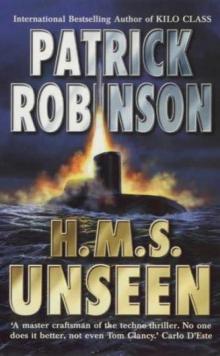 H.M.S. Unseen am-3
H.M.S. Unseen am-3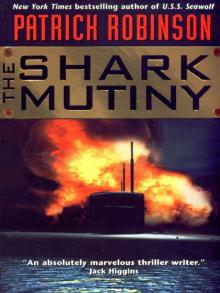 The Shark Mutiny (2001)
The Shark Mutiny (2001)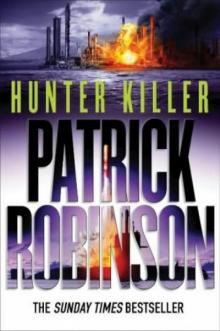 Hunter Killer am-8
Hunter Killer am-8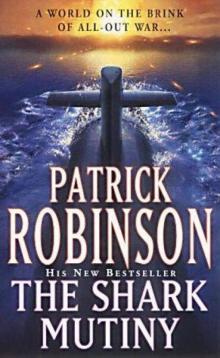 The Shark Mutiny am-5
The Shark Mutiny am-5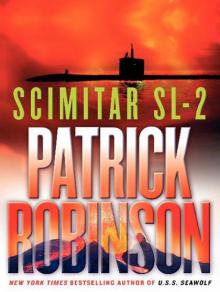 Scimitar SL-2
Scimitar SL-2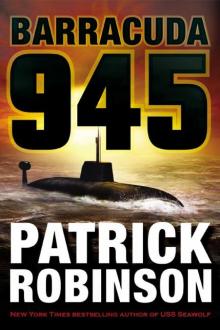 Barracuda 945 am-6
Barracuda 945 am-6 Hunter Killer
Hunter Killer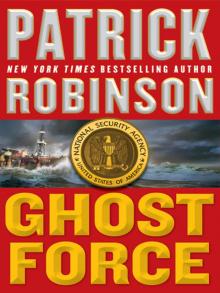 Ghost Force
Ghost Force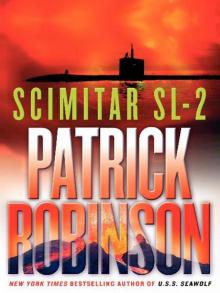 Scimitar SL-2 (2004)
Scimitar SL-2 (2004)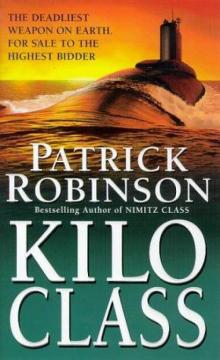 Kilo Class am-2
Kilo Class am-2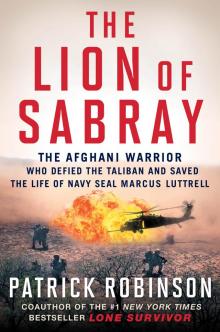 The Lion of Sabray
The Lion of Sabray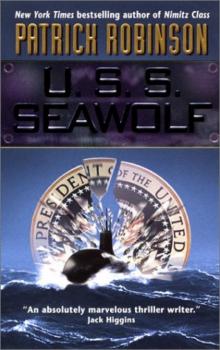 U.S.S. Seawolf am-4
U.S.S. Seawolf am-4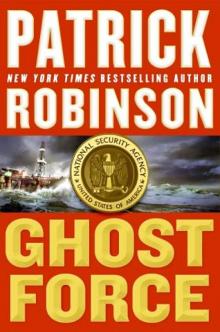 Ghost Force am-9
Ghost Force am-9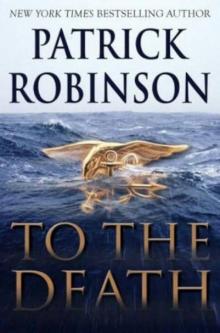 To the Death am-10
To the Death am-10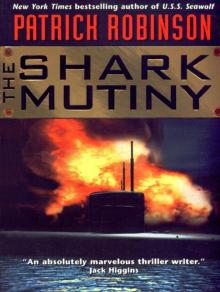 The Shark Mutiny
The Shark Mutiny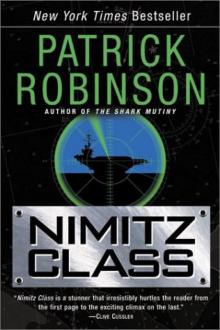 Nimitz Class am-1
Nimitz Class am-1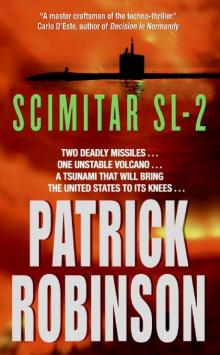 Scimitar SL-2 am-7
Scimitar SL-2 am-7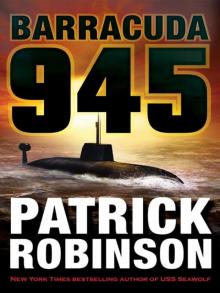 Barracuda 945
Barracuda 945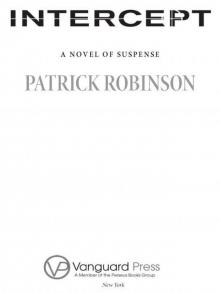 Intercept
Intercept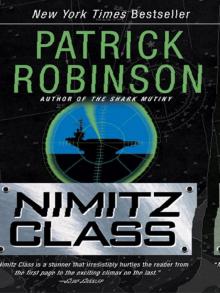 Nimitz Class (1997)
Nimitz Class (1997)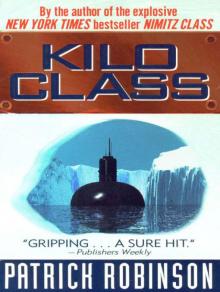 Kilo Class
Kilo Class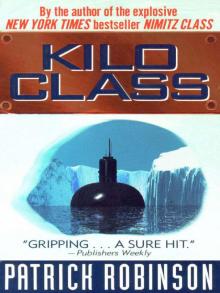 Kilo Class (1998)
Kilo Class (1998)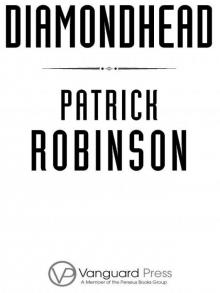 Diamondhead
Diamondhead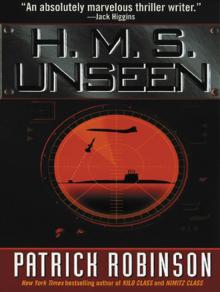 H.M.S. Unseen
H.M.S. Unseen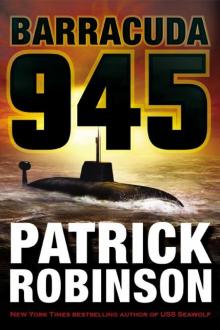 Barracuda 945 (2003)
Barracuda 945 (2003)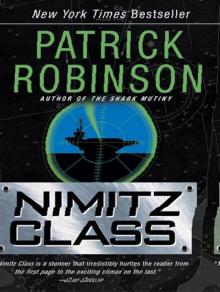 Nimitz Class
Nimitz Class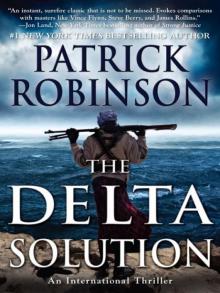 The Delta Solution
The Delta Solution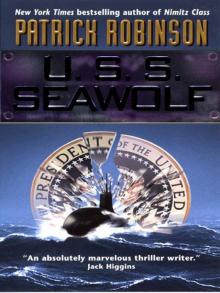 U.S.S. Seawolf
U.S.S. Seawolf